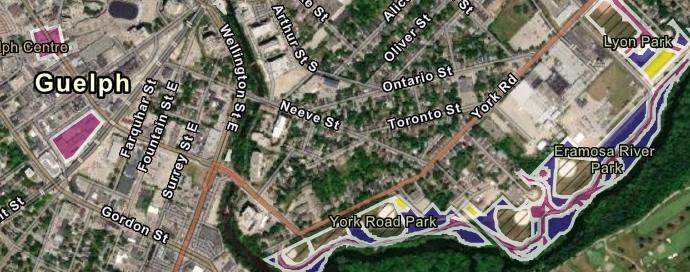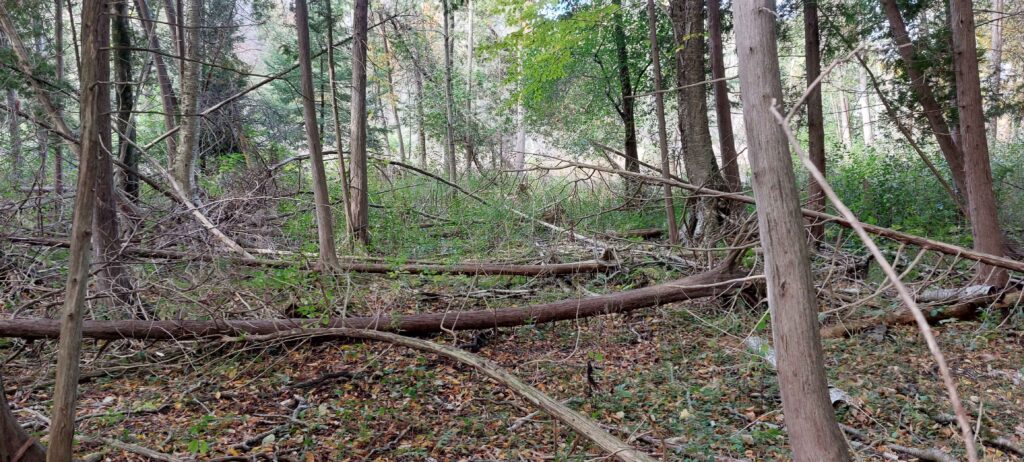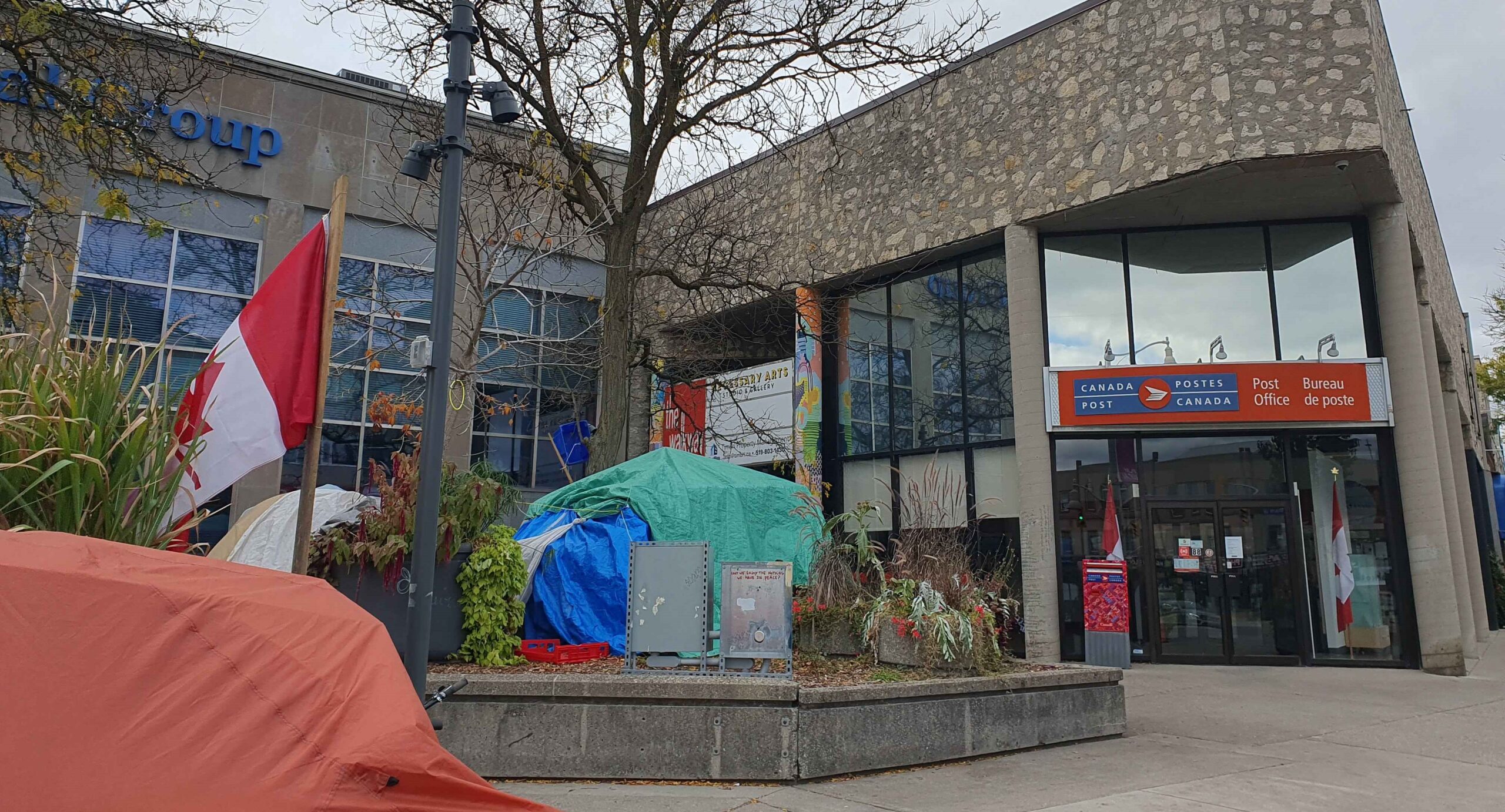A year after adopting and then withdrawing a controversial bylaw limiting homeless encampments, the City of Guelph is back at it again. The Public Spaces Use bylaw restricts the erection of temporary shelters in “designated” and “sensitive” public spaces, while allowing for people to live in tents in out-of-the-way spaces away from the downtown core. The bylaw came into effect on October 1 of this year.
The bylaw also defines “park” spaces, which are areas within city parks that see no restrictions, and are designated areas where encampments are allowed to exist.
Despite having several large city parks, the City of Guelph has, according to downtown resident Shaine Popp, “sectioned off two little areas for people in [Exhibition Park].” Examination of the city’s interactive Public Space Use map confirms that major city parks, such as Exhibition and Preservation Parks, have been carved up into mosaics of authorized and unauthorized encampment spaces.
While most services that are available for the homeless are located in Guelph’s downtown core, all authorized encampment areas are located in parks away from this area where services are easily accessible.
The nearest area to downtown that permits tents is York Road Park, located 1.1 kilometres away—about a 15-minute walk. “Park” spaces in York Road Park make up a tiny fraction of available space for the homeless to set up a shelter.

Your Downtown Guelph Friends (YDGF) is a community outreach group that provides meals for Guelph’s homeless population. This organization of volunteers says its “ability to safely and effectively provide resources to unhoused individuals has been compromised, as this bylaw restricts access to the very spaces where these individuals seek shelter and support.”
The North Star investigated some of the spaces where the city would allow encampments to be raised. A number of these locations are isolated, difficult to access, and relegated away from the network of food distribution, transit, shelters, and medical aid that is situated in Guelph’s downtown core.
Furthermore, in the parks where one could set up a shelter, the city has a wide area surrounding the trails as “sensitive,” forcing those seeking shelter off-trail, into thick brush and wet ground.
The municipality has stated they have “rolled out this bylaw in a respectful way” to people living in tents.
Popp recounts the “respectful” conduct of Guelph’s bylaw enforcement to The North Star: “They just go in with a Bobcat and roll right over [the encampment]. All your possessions, everything gone. They did that to me twice in different places.”
Popp explains, “I had a place outside of town, but the cops told me specifically that I’d be thrown out on my ass if I didn’t still move.” When inquiring as to where to go, the police officer informed Popp of the blue zone, and Popp relocated.
“Went and put up my place there. Within a week, the whole place was destroyed by the neighbours and stuff, and it got smashed,” Popp says, “so the community around there is not too nice either.”
When trying to build a shelter for himself, Popp stated, “I spent my whole cheque, my whole three hundred dollars on wood just to build out there, and it was all smashed, destroyed.” For someone who only receives just over $300 per month to feed and clothe himself, it was a blow. “That fucked me over totally.”

The previous iteration of the anti-encampment bylaw was withdrawn in November 2023 when the Supreme Court of Ontario ruled a similar Kingston bylaw unconstitutional, citing that those living in tents are members of the public, thus entitled to be in parks.
In addition to last year’s proposed bylaw, the City of Guelph also contributed to the mass evictions of the Stationview Apartments on 90 Carden Street. Many of those previous tenants now find themselves being evicted by Guelph’s bylaw and policing services from their encampments.
According to Mayor Cam Guthrie, the ultimate goal of this bylaw is to “help people try and find permanent supportive housing, and in Guelph, in just this year alone, we will have over 108 supportive housing units actually ready for people.”
For the time being, however, the mayor’s office seems to have deemed it necessary to move the homeless away from their resources before winter, with no precise timetable for enrolling them in supportive housing.
Regarding the city’s claim of a “respectful” rollout, YDGF states they respectfully disagree; “The voices of those most affected were neither considered nor consulted in the development and implementation of this bylaw. True respect involves listening and understanding, neither of which occurred in this case.”


Be part of the conversation!
Only subscribers can comment. Subscribe to The North Star to join the conversation under our articles with our journalists and fellow community members. If you’re already subscribed, log in.